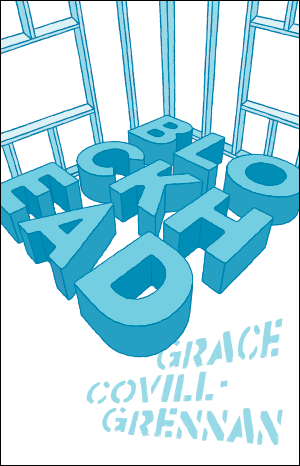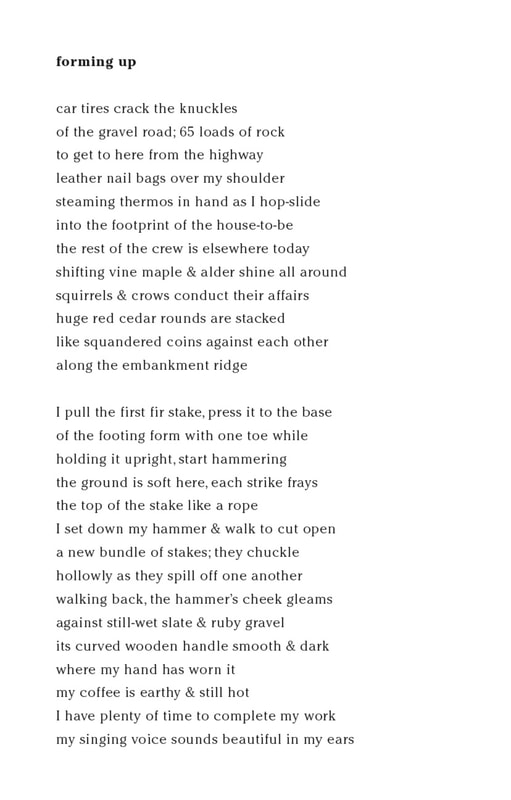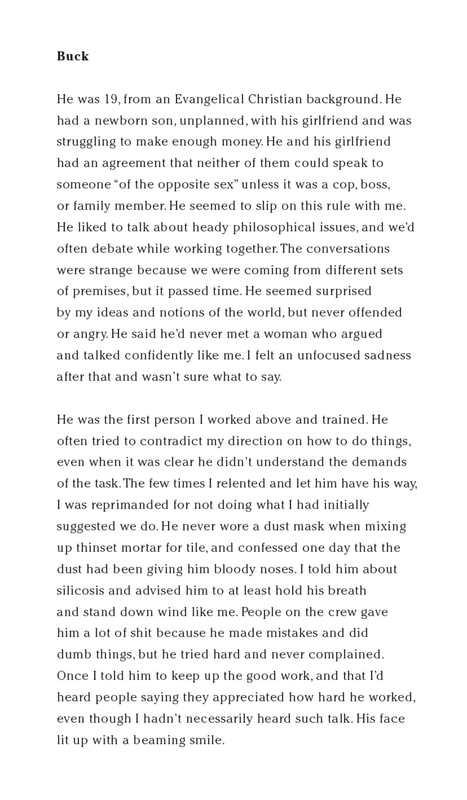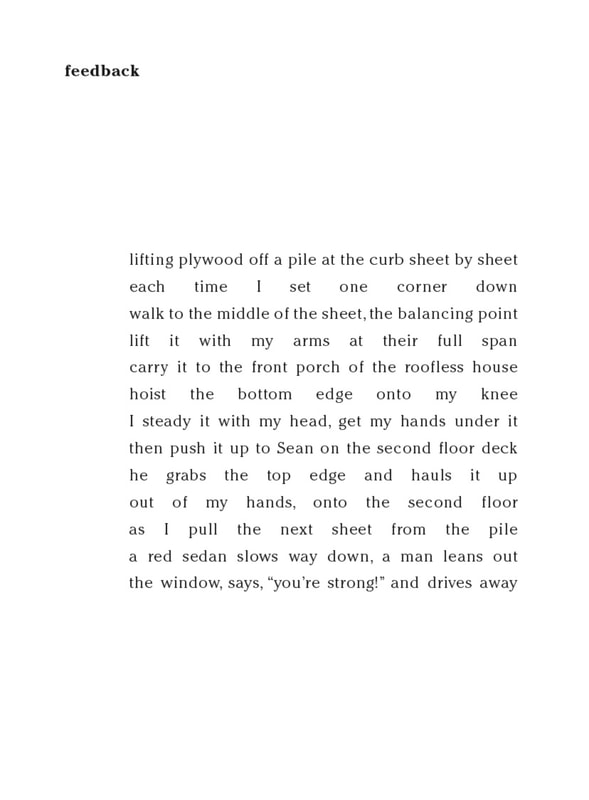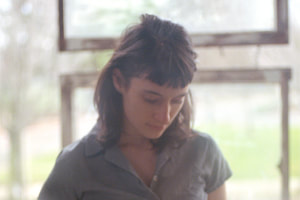ANC059: Blockhead by Grace Covill-Grennan
|
I could hear the quiet behind me and feel their eyes as they watched me go. Waiting to see if I staggered under the weight.
As demographics shift and workers age out of its labor force, the construction industry faces a hiring dilemma. Almost a third of skilled professionals active in the trades are over forty-five, and more than twenty percent are fifty-five and older. Much of the work pushes younger bodies to their limit; elder craftspeople will not be able to maintain a career during their later years as seniors are now expected to in other occupations. High demand for qualified employees is expected to continue throughout the coming decades, and recruitment efforts will need to expand beyond the populations traditionally associated with the vocation. Currently, less than one in ten workers identify as female—a figure incorporating administrative, maintenance, and inspection roles. Substantial hazards keep women from jobsites: inequity, harassment, and intimidation; a lack of access to sanitary facilities, as well as protective equipment and tools manufactured for their physical and ergonomic needs; oppressive bias in a culture defined by masculine bluster. As retirement leads to an increasing number of vacant positions, sustaining a thriving industry will require a shift in the perspectives and practices responsible for its discriminatory culture. These are circumstances Grace Covill-Grennan knows too well. In her creative nonfiction collection Blockhead, she documents aspects of her experiences and perceptions working as a carpenter. She uses hybrid-genre pieces—vignettes, character sketches, memories, and poetry—while attending to the issues of gender and class providing constant discomfort. Covill-Grennan perseveres through aggressions both intentional and subconsciously engrained in the minds of her crewmates. Every moment of satisfaction is kept in balance by a display of hostility. Yet her shifting moods, subjectivities, and affects are not without brief respites of shared futility, moments of communal gallows humor compensating as much as possible for “the awful, raw reality of working bodies being cranked through the meatgrinder of capital.” For every copy of Blockhead sold, Another New Calligraphy will donate $1 to Revolution Workshop, a nonprofit providing free apprenticeship programs in construction and woodworking for unemployed adults on Chicago's west side. Read "lineage," previewed in Impossible Task. |

